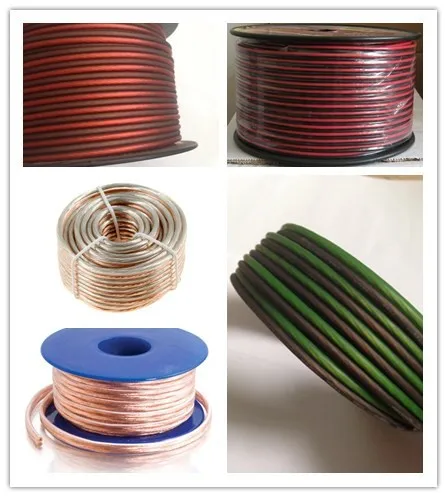

They are best for running high power units, long wire runs, and speakers that have a low impedance, which means 4 or 6 ohms. Wires that are 12 or 14 wire gauges are classed as thicker. Not only are they efficient and easy to work with, but they also save you money in the long run. If you are looking for a wire to perform relatively short runs, a 16-gauge wire is your best option. When it comes to finding the best speaker wire gauge, it all depends on how far you want to run the cable, the impedance of the speakers, and the type of material the conductor is made from. These are the ideal sizes for wiring in stereo music systems, home theaters, and other non-industrial/commercial products. The most common sizes for a speaker cable are 12, 14, and 16-gauge. Different Types of Speaker Wire Gauge & The Best Ones For You The insulation needs to be high-quality because it needs to protect the core from electrical oxidization.
4 GAUGE SPEAKER WIRE INSTALL
Flexibility is important, as this quality will let you install speaker wires in unconventional ways. Speaker wires should also have long-lasting and flexible insulation on the outside of their core. However, these elements are not as important as resistance. If you’d like a speaker wire gauge to be high in quality, you should also consider low inductance and low capacitance. Copper is also a great material for conducting electricity due to its conductor having low resistance. This is because it is used as the core conductor for both a speaker cable and an electrical cable. This means the less resistance a core has, the more signal that will be able to reach the speaker from the amplifier.Ĭopper is a material that’s commonly present in speaker wires. One of the most important aspects is a core that has a low resistance. There are a variety of elements and components that give a speaker wire gauge great quality. What Elements Make a Good Quality Speaker Wire? If you are ever unsure of the right gauge size for your new speakers, consult the manufacturer you bought the system from to give you advice and help you with the installation process. This is why a thicker wire gauge is ideal.


The thinner a wire is, the greater resistance it provides to current flow.Įssentially, to achieve the best audio performance, the resistance needs to be below a certain level. The thicker a wire is, the lower the gauge number, and vice versa. You’ll be playing music until the sun comes up in no time! What Speaker Wire Gauge Do You Need?Ī speaker wire’s AWG number (American Wire Gauge) indicates its thickness.

This guide details everything you need to know to help you purchase the right one. So, you need the knowledge to buy the correct one yourself.Ī critical aspect of finding the right speaker wire is selecting the proper gauge (or thickness).
4 GAUGE SPEAKER WIRE FULL
Chances are, you want to crank up the volume, listen to your favorite music on full blast, and dance the night away.īut having the correct speaker wire is a crucial part of your sound system’s function, and many systems don’t actually come with speaker cables. After buying your dream speakers and sound system, the last thing you want to do is think about a speaker cable and focus on the “boring” bits.


 0 kommentar(er)
0 kommentar(er)
